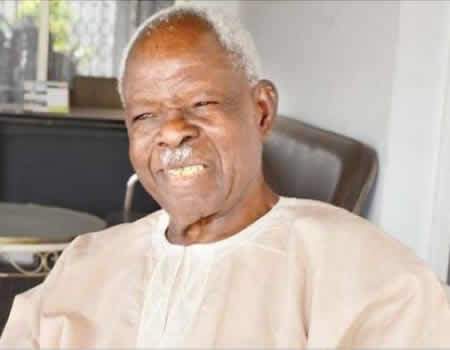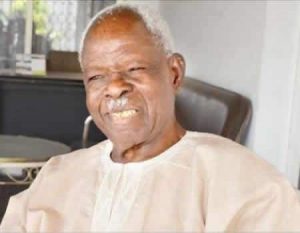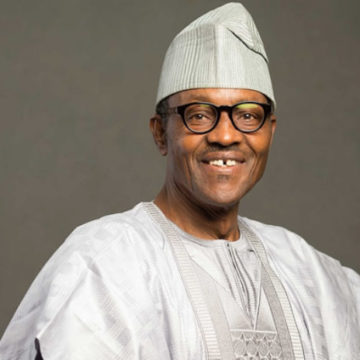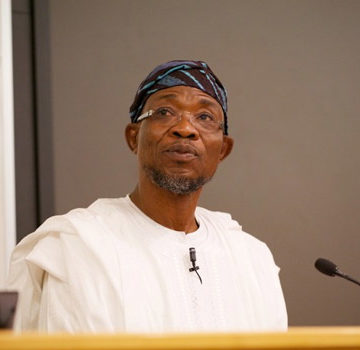General Adeyinka “Owanbe” Adebayo: Exit Of Second Military Governor Of Nigerian Western Region …How he died •Life and times +Eminent Nigerians extol his virtues

General Adeyinka “Owanbe” Adebayo:
Exit Of Second Military Governor Of Nigerian Western Region
…How he died •Life and times +Eminent Nigerians extol his virtues
A former military governor of the defunct Western Region and the leader of the Yoruba Council of Elders (YCE), Major-General Robert Adeyinka Adebayo, is dead.
Family members at his Iyin-Ekiti, Ekiti State home, on Wednesday, said General Adebayo died in the early hours of Wednesday.
He was said to have died in a hospital in Ikeja, Lagos State, a day to his 89th birthday.
Alaba Adeyemi, his nephew and his son, Chief Niyi Adebayo, confirmed the news of his death.
Adeyemi said: “He instructed before he died to break the news to the Oluyin of Iyin-Ekiti, the chiefs of Iyin and the family at our family house, which I have done.”
He said: “We are in shock, just like the Oluyin, Oba Ademola Ajakaye, not because we thought he would not die, but because of his sudden demise.
“He was in Iyin-Ekiti about three weeks ago for the celebration of the 50th anniversary of Eyemote Comprehensive High School, Iyin-Ekiti.”
Adeyemi said he was “a great father and a respected patriarch of the Adebayo family. He will be sorely missed.”

A leader, worthy elder of Yoruba nation —Afenifere
Pan-Yoruba sociopolitical group, Afenifere, on Tuesday, said General Adebayo was a leader and worthy elder of the Yoruba nation.
Afenifere said this in a statement issued by its national publicity secretary, Mr Yinka Odumakin, noting that General Adebayo “lived a good and worthy life of impact, which makes his memory unforgettable.”
The group, however, lamented that the General died when Yoruba leaders were pulling together to advance their civilisation.
It, therefore, promised that “those of us left behind will continue the task of realising the dreams we shared when he chaired a great assembly of Yoruba last year.
“May his great soul rest in peace and may God be with the family he has left behind.”
He was a fine officer —Saraki
The Senate President, Dr Bukola Saraki, expressed grief over the death of General Adebayo.
He commiserated with the immediate family of the deceased, the government and people of South-West and Nigerians in general over the incident.
Saraki, in a statement by his Special Adviser on Media and Publicity, Yusuph Olaniyonu, described the late General as a courageous and fine officer, who spent the most active part of his life in the service and defence of the fatherland.
The lawmaker described death as an inevitable end for all mortals, noting that Adebayo lived a highly productive, fulfilled and eventful life, worthy of emulation.
According to him, “it is sad that we have lost an elder statesman, whose wealth of experience and fatherly advice is still needed to help us navigate our way out of the present socioeconomic challenges confronting the country at this time.”
Remarkable statesman, proficient administrator —Atiku
Former vice president and chieftain of the All Progressives Congress (APC), Alhaji Atiku Abubakar, described General Adebayo as a remarkable statesman, who belonged to the last vestiges of Nigeria’s pioneering heroes.
“Chief Adebayo was a proficient administrator as well as an outstanding soldier, who fought to keep our country together.
“Much later in his lifetime, he championed the cause of the Yoruba nation in an inclusive Nigerian project, so enviably that historians eminently had a record of him as a pan-Nigeria advocate,” Atiku said.
He lived a fulfilled life —Fayose
Ekiti State governor, Mr Ayodele Fayose, described General Adebayo as someone who lived a fulfilled life and who was an Ekiti man to the core.
In a condolence message in Ado-Ekiti, the state capital, signed by the governor, he said Ekiti people would never forget the late General for his love and for epitomising virtues of an Ekiti person.
He said: “General Adebayo was not a bigot and never allowed political considerations to becloud his sense of fairness, honesty and boldness in the face of daunting obstacles.
“He always called a spade a spade and not mind whose ox was gored. He never allowed sentiments to sway his sense of judgment; he was a true father to all.”
Adebayo a true patriot —Akeredolu
Ondo State governor, Mr Oluwarotimi Akeredolu SAN, has described the death of Adebayo as a great loss to the Yoruba people and Nigeria in general.
“The death of General Adebayo has created a vacuum in the class of the true leaders of the country. He was among the old generation of patriotic Nigerians who truly loved their country and served it very well. He will be missed, not only by his family, but by the country.
“In a country where it is hard to find true and committed soldiers, General Adebayo was one of the few who fought to defend the unity of the country. Even in his private life, he continued to live exemplary lifestyle that is committed to the unity and development of the nation.”
The governor, who prayed for the repose of the soul of late General, prayed that God would grant the family the fortitude to bear the loss.
A devoted father, leader is gone —Fayemi
Minister of Mines and Steel Development, Dr Kayode Fayemi, him as a devoted father, leader and administrator with uncommon love and commitment for the progress of his people.
Fayemi said the death of the foremost Yoruba leader had robbed the Yoruba race and, indeed, the country of a true patriot and a great leader.
The minister, in a condolence message signed by his Special Assistant on Media, Mr Yinka Oyebode, described the late General Adebayo as a distinguished and highly-refined leader and elder statesman, who lived his entire active life and retirement working for the unity and progress of the country.
Nigeria has lost a patriot —Oyinlola
Former Osun State governor, Prince Olagunsoye Oyinlola, described the transition of General Adebayo as a great loss to Nigeria, Yorubaland and the Nigerian military.
Prince Oyinlola, in a statement, said Adebayo left indelible footprints as an achiever and a patriot of distinction.
“He gave his very best in the service of our people. In times of challenges, he was available as a leader. His place will be difficult to fill. We will all miss his fatherly presence. May God Almighty repose his soul and grant the family the fortitude to bear the loss,” he said.
He worked for unity of the nation —Balarabe Musa
Alhaji Balarabe Musa, former governor of old Kaduna State, told the News Agency of Nigeria (NAN) that Nigeria had lost one of its oldest retired military officers.
He said Adebayo was a fine gentleman and knowledgeable leader.
Musa described him as a noble elder statesman, who worked for the unity of the nation.
“He was a good and hardworking officer who worked for the unity of this nation and one of the leaders needed to make adequate corrections in this country.
A great lover of Yoruba race —Akinfenwa
Senator Mojisoluwa Akinfenwa, former national chairman, Alliance for Democracy (AD), described General Adebayo as a great Nigerian and great lover of Yoruba race.
He said this while condoling with the Adebayo family over the death of former governor of the old Western Region of Nigeria.
Akinfenwa, who hailed Adebayo as a distinguished and one of foremost soldier of the Nigerian Army, said Nigeria had again lost one of its great statesmen.
Extolling Adebayo’s virtues, Akinfenwa said: “General Adeyinka Adebayo served the Yoruba race excellently well when he was the military governor of old Western Region,” adding that “he was a great Nigeria and a great lover of Yoruba race.”
He said “his son, Niyi, who was very new in the politics of the Fourth Republic, was adopted by the Alliance for Democracy as its governorship candidate and voted for by the highly enlightened and educated Ekiti people to honour his amiable father.
“General Adebayo was amiable and friendly, his smile was captivating, and under his smile was hidden his great value of friendship.
“He remained a leader of our people to the end.
“May his soul rest in peace.”
Nigeria has lost another nationalist —Gbenga Daniel
Former governor of Ogun State, Chief Gbenga Daniel, described the passage of General Adebayo as a great loss to Nigeria and particularly to the Yoruba nation, where he served meritoriously.
In his condolence message to the family of the late chairman of the Yoruba Council of Elders (YCE), Chief Daniel described the exit of General Adebayo as a sad loss coming at this point in the political evolution of our nation and at a time the Yoruba people was in dire need of political identity and guidance.
According to the former governor, “General Adebayo was a man of peace, who though he was trained as a military, advocated peace and dialogue in settling the Civil War as opposed to arms conflict, a position which later earned him the chairmanship of the Committee on Reconciliation and Integration after the war.”
We will celebrate his life —Oluyin of Iyin-Ekiti
Oba Ademola Ajakaye, who is the traditional ruler of Iyin-Ekiti, the hometown of General Adebayo, said the community would celebrate him.
Oba Ajakaye, who was the first chief judge of Ekiti State and former administrator of the National Judicial Institute, described General Adebayo as “a true Nigerian, a true statesman and a respected military officer, who contributed immensely to the development of Iyin-Ekiti and Nigeria.”
A forthright leader, statesman —Bode George
Former deputy national chairman of Peoples Democratic Party (PDP), Chief Olabode George, Adebayo as a nation builder, a nationalist and a pan-Nigerian unifier, whose vision and total focus was the unity and the development of the Nigerian State.
Chief George said this in a statement made available to the Nigerian Tribune.
The PDP chieftain also said the former governor rose above sectional and parochial interest and further described him as a warm-hearted and loving soul, whose defining vision was predicated on the greater glory of Nigerian nation.
Adebayo pioneered modern Ekiti —Bamidele
A prominent indigene of Iyin-Ekiti and the governorship candidate of Labour Party in 2014, Mr Opeyemi Bamidele, said the death of General Adebayo was a great loss to the community.
Bamidele, a former member of the House of Representatives, also described General Adebayo as “the pioneer of modern Ekiti,” saying “his death has created a vacuum that would be difficult to fill.”
Bamidele, in a statement on Wednesday, expressed his condolences to the Adebayo family and said “the people were grateful for a fulfilled life of the General, who he described as the pioneer of modern Ekiti.
He said: “My sincere condolence goes to his family. He was the pioneer of modern Ekiti. The late General was instrumental to the development of Ekiti in all spheres during his reign as the Military Governor of the defunct Western State. He shall be sorely missed by his people.
“Adebayo’s exemplary and sterling leadership qualities earned him the chairmanship of the revered Yoruba Council of Elders (YCE),” adding that “the late military governor brought his pan-Ekiti spirit to bear during his time in the saddle in the old Western Region by exposing the entire old Ekiti division to modernity through the building of schools, hospitals, roads, water that pioneered the development of the region.”
The news reached us as a shock —YPM
The National Coordinator of Yoruba Patriots Movement (YPM), Chief Oladipo Oladosu, said the news of General Adebayo’s death reached the YPM as a shock.
“It’s a shock to us because Papa was a living legend after the sage, Pa Obafemi Awolowo.
“He was a great Yoruba patriot till his death. The vacuum created by his death in the Yoruba nation and his leadership position of inclusiveness and proactive leadership style will not only be missed, but also difficult to fill.

My father was a nationalist —Adebayo’s daughter
Mrs Nike Makinde, a daughter of General Adebayo on Wednesday said her father was a nationalist who was generous to everyone who came his way.
“I will miss talking to him on a regular basis and spending time with him,” Makinde told newsmen at the residence of her late father in Ikeja GRA, Lagos State.
She spoke as friends and well-wishers thronged into the Ikeja GRA residence of the late elder statesmen to pay their condolences to family members following his death earlier in the day.
According to Makinde, the late General did his best for his children, state and the entire nation.
“We are sad that we lost him, but we have a lot of gratitude to God for his service to the nation. He was a very loving father, very handsome grandfather, very involving in all our lives.
“We were extremely close to our father. We will miss him a lot. Our father was a nationalist, his first constituency was Nigeria and the Nigerian Army. Politics was not his constituency, he was a statesman.”
His life and times
Unknown to many, the popular “owambe” cliche which is today associated with party crawlers in the South-Western part of Nigeria unexpectedly was a coinage of a former governor of the old Western region, Major-General Adeyinka Adebayo.
His education
Born in 1928 in Iyin Ekiti, near Ado-Ekiti, the Ekiti State capital, Adebayo attended All Saints School, Iyin-Ekiti, for his primary education and attended Eko Boys High School and Christ’s School, Ado-Ekiti, for his secondary education.
In 1948, he joined the West African Frontier Force as a regiment signaler and later completed the Officer Cadet Training Course in Teshie, Ghana, from 1950 to 1952.
After passing the War Office Examination for Commonwealth cadets in 1952 as well as the West African Qualifying Examination in 1953, Adebayo was commissioned as an officer in the Royal West African Frontier Force (RWAFF) as the 23rd West African military officer with number WA23 and famous number seven as a Nigerian military officer with number N7 after completing the War Office Cadet Training in Eaton Hall, England.
He later attended the Staff College course in Camberley (Surrey) in 1960 and the prestigious Imperial Defence College, London in late 1965, where he was the only African officer.
His career
Adeyinka Adebayo, in his 22 years military sojourn which commenced with his commissioning as an officer in 1953, took him through over 20 commissions and positions, which he gallangly wrote his name in the golden book of the Nigerian Army.
Between 1954 and 1955, he became a Platoon Commander, a Regimental Signal Officer between 1955 and 1957, while he became an aide-de-camp to a British governor, in particular the last British Governor-General of Nigeria, Sir James Robertson, between 1957 and 1958.
From 1958 till 1960 when Nigeria got its independence, Adebayo served as the Company and Detachment Commander, Ikoyi, while he capped it up as the first Nigerian General Staff Officer, Grade 2 (Intelligence) at the United Nations Headquarters in 1961. That could only became many of his firsts as the offcier of the Nigerian Army, as he was also the first National General Staff Officer, Grade 2 Nigerian Army Headquarters 1961–1962.
He was the first Nigerian to be appointed General Staff Officer Grade 1, 1962-1963 and Commander, Nigerian contingent in the Congo, 1963. He also served as Staff Officer in the United Nations peacekeeping force during the Congo crisis, between 1961 and 1963 before he capped it as the first indigenous Chief of Staff of the Nigerian Army, Nigerian Army Headquarters, from February 1964 till November 1965.
Adebayo also served as the chairman, Organinisation of African Unity (OAU) Defence Planning Committee between 1963 and 1965; head of Nigerian delegation to the OAU Summit in Ethiopia, November 1966; military governor, Western Nigeria between 1966 and 1971; Commandant, Nigerian Defence Academy, 1971 till 1972; ceremonial military duties, 1972 till 1975, before he finally retired from the Nigerian Army with the rank of Major-General in July 1975.
Despite his brilliant performance in various capacities as officer of the Nigerian Army, where he was notably remembered for his role as the military governor of the old Western region comprising the present day Lagos, Ogun, Oyo, Osun, Ondo and Ekiti states, he also excelled as an astute adminstrator, who took over the reign of the region at a time he said the region was in its dark days.
His involvement at war resolution
His agitation for peaceful resolution on Biafran crisis was a notable aspect of Adebayo’s reign. In one of the most prescient and articulate quotations of the war, he was quoted to have said “I need not tell you what horror, what devastation and what extreme human suffering will attend the use of force. When it is all over and the smoke and dust have lifted, and the dead are buried, we shall find, as other people have found, that it has all been futile, entirely futile, in solving the problems we set out to solve.”
At the ontset of war, Colonel Adebayo, governor of the then Western State, ordered all bridges into the West be destroyed to prevent the Biafran rebels from reaching Lagos, the then capital of Nigeria. The rebels went as far as Ore, in present day Ondo State which was 100 kilometres (62 miles) from Lagos.
After the war, he was appointed by the then head of state, General Yakubu Gowon, as the chairman of the Committee on the Reconciliation and Integration of the Igbos (Biafrans) back into the Nigerian fold.
Major-General Adebayo was the governor during the infamous farmers’ “Agbekoya” revolt over taxation, which was eventually resolved peacefully and harmoniously.
His love for parties
Coined the word ‘owambe’
He is most likely to be remembered for coining the word ‘owambe’ to describe the glamorous parties he hosted at the State House during the Civil War.
Though he was widely criticised for throwing parties while the nation went through war, he brilliantly defended his actions, obliging of his role as the administrator appointed at that crucial time to ensure peace in the troubled region.
In later years, he defended the parties, saying in one interview that “first of all, I want to say that everything depends on what you want in life. I think I have lived a good life. Now, let me tell you about the owambes. When I went to the West as governor, it was very ‘dark’ and in turmoil: Awolowo was in prison, Akintola had been killed, most of the leaders had been killed or in hiding. There was darkness in the West. I didn’t know the people well, together with the kind of politics they played. I had to open up the politics of the West and bring the people closer to me one way or the other, so that I could study them.
“Secondly, the plan was to use the galas to bring people nearer the government and give them a sense of belonging. I visited them sometimes and if it was impossible to discuss with them there, I sent vehicles to bring them to Government House and had lunch with them. Before long, words had gone around that I was doing a good job. That was why some people began to call me owambe and I loved it!”
– Nigerian Tribune






